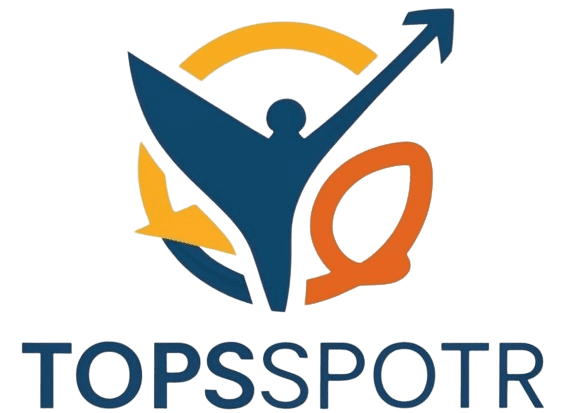Revolutionize your HR operations with artificial intelligence. Discover the most powerful AI tools for HR Automation that are transforming recruitment, employee engagement, and HR management processes.
What is HR Automation?
HR automation uses artificial intelligence and machine learning to streamline human resources tasks, from recruitment to employee management. These tools reduce manual work, minimize errors, and allow HR professionals to focus on strategic initiatives.
Top 10 AI Tools for HR Automation
1. Workday
- Best for: Complete HR management automation
- Key Features:
- AI-powered talent acquisition
- Employee lifecycle management
- Performance tracking
- Automated payroll systems
- Advanced analytics dashboard
- Machine learning recommendations
2. BambooHR
- Best for: Small to medium businesses
- Key Features:
- Automated applicant tracking
- Employee onboarding automation
- Time-off management
- Performance management
- Employee self-service portal
- Custom workflow automation
3. Eightfold AI
- Best for: AI-driven talent intelligence
- Key Features:
- Deep-learning talent matching
- Career path planning
- Skills-based hiring
- Diversity and inclusion tools
- Talent rediscovery
- Internal mobility platform
4. Pymetrics
- Best for: Bias-free recruitment
- Key Features:
- Neuroscience-based assessments
- Soft skills evaluation
- Fair hiring algorithms
- Candidate matching
- Behavioral analysis
- Custom assessment creation
5. HiredScore
- Best for: Recruitment automation
- Key Features:
- AI-powered candidate screening
- Resume parsing
- Automated candidate ranking
- Integration capabilities
- Compliance monitoring
- Predictive analytics
6. Ideal
- Best for: Talent screening and matching
- Key Features:
- Automated resume screening
- Candidate engagement
- Interview scheduling
- Recruitment chatbots
- Diversity hiring
- Performance prediction
7. UKG Pro
- Best for: Enterprise HR automation
- Key Features:
- AI-driven insights
- Employee experience management
- Benefits administration
- Workforce management
- Succession planning
- Learning management
8. PeopleSoft
- Best for: Large organization HR management
- Key Features:
- Global HR automation
- Talent optimization
- Compensation management
- Employee development tracking
- Compliance management
- Performance analytics
9. Darwinbox
- Best for: Modern HR operations
- Key Features:
- Mobile-first platform
- AI-powered hiring
- Performance management
- Employee engagement
- Learning management
- Analytics and insights
10. Phenom
- Best for: Talent experience management
- Key Features:
- AI-powered career sites
- Candidate relationship management
- Employee development
- Referral automation
- Internal mobility
- Skills gap analysis

Key Benefits of HR Automation Tools
1. Recruitment Process Optimization
- Automated candidate screening
- Intelligent resume parsing
- Improved candidate matching
- Reduced time-to-hire
- Enhanced candidate experience
2. Employee Management
- Streamlined onboarding
- Automated performance reviews
- Simplified leave management
- Better employee engagement
- Efficient documentation
3. Data-Driven Decision Making
- Real-time analytics
- Predictive insights
- Performance tracking
- Retention forecasting
- Strategic planning support
How to Choose the Right AI Tools For HR Automation
Consider these essential factors:
- Integration Capabilities
- Existing software compatibility
- API availability
- Data migration options
- Scalability
- Growth accommodation
- Feature expandability
- User capacity
- User Experience
- Interface design
- Mobile accessibility
- Employee self-service options
- Security Features
- Data protection
- Compliance standards
- Access control
Implementation Best Practices
Follow these steps for successful HR automation:
- Assessment
- Evaluate current processes
- Identify automation opportunities
- Set clear objectives
- Planning
- Create implementation timeline
- Assign team responsibilities
- Develop training programs
- Deployment
- Phase-wise implementation
- Regular progress monitoring
- Feedback collection
Common Use Cases
HR automation tools excel in:
- ✓ Recruitment and hiring
- ✓ Employee onboarding
- ✓ Performance management
- ✓ Payroll processing
- ✓ Leave management
- ✓ Training and development
- ✓ Employee engagement
- ✓ Compliance monitoring
Frequently Asked Questions
How does AI improve HR processes?
AI automates repetitive tasks, improves decision-making through data analysis, and enhances the overall efficiency of HR operations.
Can AI HR tools reduce hiring bias?
Yes, AI tools use objective criteria and standardized assessments to evaluate candidates, helping reduce unconscious bias in hiring.
What HR tasks can be automated?
Common automated tasks include resume screening, interview scheduling, onboarding processes, leave management, and performance reviews.
Is HR automation suitable for small businesses?
Yes, many HR automation tools offer scalable solutions suitable for businesses of all sizes, with features that can grow with your organization.
Future of HR Automation
The evolution of HR automation includes:
- Advanced predictive analytics
- Enhanced employee experience
- Improved talent management
- Greater personalization
- Integrated workplace solutions



